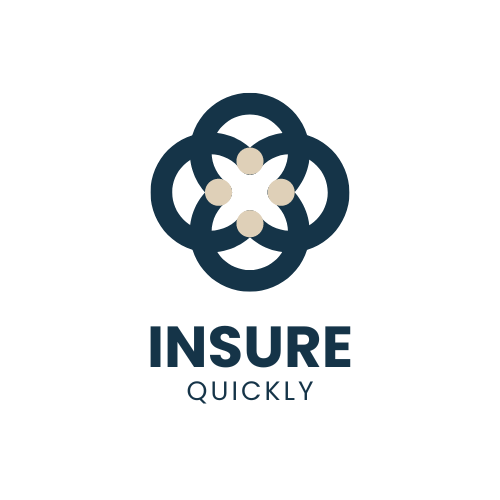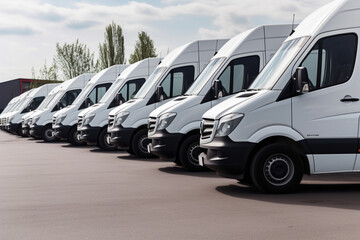Car insurance for business vehicles is an essential aspect of operating a business that relies on transportation. Whether you manage a small fleet or a single vehicle, understanding the nuances of commercial auto insurance can save your business from significant financial risk. This guide will cover everything you need to know about insuring business vehicles, from the basics to more advanced considerations.
Understanding Car Insurance for Business Vehicles
 Car insurance for business vehicles, also known as commercial auto insurance, differs significantly from personal auto insurance. It is designed to cover vehicles used for business purposes, providing protection for the vehicle, driver, and any third parties involved in an accident. This type of insurance is crucial for businesses that use vehicles to transport goods, provide services, or carry passengers. The coverage includes liability, physical damage, medical payments, and uninsured motorist protection, ensuring comprehensive protection against various risks.
Car insurance for business vehicles, also known as commercial auto insurance, differs significantly from personal auto insurance. It is designed to cover vehicles used for business purposes, providing protection for the vehicle, driver, and any third parties involved in an accident. This type of insurance is crucial for businesses that use vehicles to transport goods, provide services, or carry passengers. The coverage includes liability, physical damage, medical payments, and uninsured motorist protection, ensuring comprehensive protection against various risks.
Types of Coverage Available
When considering car insurance for business vehicles, it’s essential to understand the different types of coverage available.
- Liability Coverage: This is the most critical component, covering bodily injury and property damage caused by your business vehicle. It protects your business from financial loss if your vehicle is involved in an accident and found at fault.
- Physical Damage Coverage: This includes collision and comprehensive coverage. Collision insurance pays for damage to your vehicle resulting from an accident, while comprehensive covers damage from non-collision events such as theft, vandalism, or natural disasters.
- Medical Payments Coverage: This type of coverage pays for medical expenses for the driver and passengers in your business vehicle, regardless of who is at fault in an accident.
- Uninsured/Underinsured Motorist Coverage: This provides protection if your business vehicle is involved in an accident with a driver who has insufficient or no insurance.
- Hired and Non-Owned Auto Insurance: This is vital if your employees use their vehicles for business purposes. It provides liability coverage for vehicles not owned by your company but used for business operations.
Factors Affecting Premiums
Several factors influence the cost of car insurance for business vehicles. Understanding these can help you manage your insurance costs more effectively.
- Type and Number of Vehicles: The kind of vehicles you use and their number significantly affect your premium. Larger, more expensive vehicles or a larger fleet will result in higher premiums.
- Usage of Vehicles: How you use your business vehicles impacts your insurance costs. Vehicles used for long-distance travel or high-risk activities will attract higher premiums.
- Driver’s Records: The driving records of your employees are crucial. Insurance companies consider drivers with clean records less risky and offer lower premiums, whereas those with traffic violations or accidents will lead to higher costs.
- Location: Where your business operates also affects your premium. Areas with higher crime rates or more traffic congestion tend to have higher insurance rates.
- Coverage Limits and Deductibles: The amount of coverage you choose and your deductible level will also impact your premium. Higher coverage limits increase your premium, while higher deductibles can lower it.
Benefits of Commercial Auto Insurance
Commercial auto insurance offers several benefits that make it indispensable for businesses.
- Financial Protection: It provides financial coverage for repairs or replacements of business vehicles, medical expenses, and legal fees in case of an accident.
- Legal Compliance: Many states require businesses to have a minimum level of auto insurance. Having the right coverage ensures your business complies with legal requirements.
- Employee Safety: It ensures that your employees are protected while driving business vehicles, providing peace of mind for both the employer and the employees.
- Asset Protection: It protects your business assets from potential lawsuits and claims arising from auto accidents involving your business vehicles.
How to Choose the Right Insurance Policy
Selecting the right car insurance for business vehicles involves careful consideration of several factors.
- Assess Your Needs: Evaluate your business’s specific needs, including the type and number of vehicles, usage, and risk exposure.
- Compare Quotes: Obtain quotes from multiple insurance providers to compare coverage options and prices. This will help you find a policy that offers the best value for your business.
- Check for Discounts: Many insurance companies offer discounts for things like having a safe driving record, installing safety devices in your vehicles, or bundling multiple policies. Make sure to inquire about available discounts.
- Review the Policy: Carefully review the policy terms and conditions to ensure it covers all necessary aspects of your business operations.
- Consult an Insurance Broker: If you’re unsure about the best policy for your needs, consider consulting an insurance broker who specializes in commercial auto insurance. They can provide expert advice and help you navigate the options.
Common Mistakes to Avoid
When purchasing car insurance for business vehicles, businesses often make several common mistakes. Avoiding these can save you time, money, and potential legal issues.
- Underinsuring Vehicles: Choosing minimum coverage to save on premiums can be risky. Ensure your policy provides adequate coverage to protect your business from significant financial loss.
- Not Updating Policies: Failing to update your insurance policy as your business grows or changes can leave you underinsured. Regularly review and update your policy to reflect any changes in your operations or vehicle usage.
- Ignoring Exclusions: Not paying attention to policy exclusions can lead to unpleasant surprises when filing a claim. Make sure you understand what is and isn’t covered by your policy.
- Overlooking Employee Training: Poor driving practices can lead to higher insurance premiums and increased risk of accidents. Invest in regular driver training programs to ensure your employees drive safely and responsibly.
Claims Process and Tips
Knowing how to navigate the claims process efficiently can save your business time and hassle.
- Report Immediately: Notify your insurance company as soon as possible after an accident. Prompt reporting helps expedite the claims process.
- Document Everything: Gather all necessary documentation, including accident reports, photos, witness statements, and repair estimates. This information will be crucial when filing your claim.
- Follow Up: Stay in regular contact with your insurance provider to monitor the progress of your claim. Promptly provide any additional information they request.
- Keep Records: Maintain detailed records of all communications and transactions related to the claim. This can help resolve any disputes or issues that may arise.
The Role of Risk Management
Implementing a robust risk management strategy can significantly reduce your insurance costs and improve safety.
- Driver Screening: Implement a thorough screening process for hiring drivers. Check driving records, conduct background checks, and ensure they have the necessary qualifications.
- Regular Maintenance: Regular vehicle maintenance can prevent accidents caused by mechanical failures. Keep detailed maintenance records and ensure all vehicles are serviced according to manufacturer guidelines.
- Safety Programs: Develop and implement safety programs that include regular training for drivers, safe driving practices, and the use of safety equipment.
- Monitor Driving: Use technology such as GPS tracking and telematics to monitor driving behavior. This can help identify risky behaviors and address them promptly.
Future Trends in Commercial Auto Insurance
The commercial auto insurance industry is evolving, with several trends shaping its future.
- Telematics: The use of telematics is increasing, allowing insurers to monitor driving behavior in real-time and offer usage-based insurance policies.
- Autonomous Vehicles: As autonomous vehicles become more common, insurance policies will need to adapt to cover the unique risks associated with them.
- Digital Transformation: Insurers are increasingly using digital tools to streamline processes, from obtaining quotes to filing claims, making it easier for businesses to manage their insurance needs.
- Sustainability: With the rise of electric and hybrid vehicles, insurance policies are evolving to address the specific risks and benefits associated with these types of vehicles.
Car insurance for business vehicles is a critical component of managing a business that relies on transportation. By understanding the different types of coverage, factors affecting premiums, benefits, and how to choose the right policy, businesses can ensure they are adequately protected. Avoiding common mistakes, navigating the claims process effectively, implementing risk management strategies, and staying informed about industry trends can further enhance the safety and financial security of your business operations.
FAQs about Car Insurance for Business Vehicles
1. What is car insurance for business vehicles?
Car insurance for business vehicles is a specialized insurance policy designed to cover vehicles used for business purposes. This type of insurance provides protection against various risks, including accidents, theft, and damage to the vehicle. It is essential for any business that uses vehicles to transport goods, provide services, or carry passengers, as it ensures financial protection and legal compliance.
2. Why do I need car insurance for my business vehicles?
Car insurance for business vehicles is crucial because it offers protection for your business against potential financial losses resulting from accidents or damages involving your vehicles. It covers liabilities, vehicle repairs, and medical expenses, helping you manage risks and comply with legal requirements. Without adequate insurance, your business could face significant financial and legal challenges.
3. What types of coverage are included in commercial auto insurance?
Commercial auto insurance typically includes several types of coverage:
- Liability Coverage: Covers bodily injury and property damage caused by your vehicle.
- Physical Damage Coverage: Includes collision and comprehensive insurance for vehicle repairs and replacement.
- Medical Payments Coverage: Pays for medical expenses for the driver and passengers in the event of an accident.
- Uninsured/Underinsured Motorist Coverage: Provides protection if you’re involved in an accident with a driver who has insufficient or no insurance.
4. How do I determine the right amount of coverage for my business vehicles?
Determining the right amount of coverage involves evaluating your business’s specific needs, including the type and number of vehicles, their usage, and associated risks. It’s essential to consider factors such as vehicle value, potential liabilities, and legal requirements. Consulting with an insurance professional can help you assess your needs and choose a policy that provides adequate protection.
5. What factors can affect the cost of commercial auto insurance?
Several factors can influence the cost of commercial auto insurance, including:
- Type and Number of Vehicles: Larger or more expensive vehicles and a larger fleet can increase premiums.
- Usage: High-risk activities or extensive vehicle use can lead to higher costs.
- Driver Records: Drivers with clean records may attract lower premiums compared to those with traffic violations or accidents.
- Location: Areas with higher crime rates or traffic congestion may result in higher premiums.
6. Are there discounts available for commercial auto insurance?
Yes, many insurance providers offer discounts for commercial auto insurance. These may include discounts for having a clean driving record, installing safety features in your vehicles, or bundling multiple policies. It’s a good idea to inquire about available discounts to help reduce your insurance costs.
7. What should I do if I need to file a claim for my business vehicle?
If you need to file a claim, start by reporting the incident to your insurance provider as soon as possible. Document the details of the accident, including photos, witness statements, and repair estimates. Maintain communication with your insurer to track the progress of your claim and provide any additional information they may require.
8. How can I manage risks associated with my business vehicles?
Managing risks involves several strategies:
- Driver Screening: Hire drivers with clean records and proper qualifications.
- Vehicle Maintenance: Regularly service and maintain your vehicles to prevent mechanical failures.
- Safety Programs: Implement safety training programs for your drivers and use safety equipment.
- Monitoring: Use technology to monitor driving behavior and address risky practices.
9. What future trends should I be aware of in commercial auto insurance?
Future trends in commercial auto insurance include the increasing use of telematics for monitoring driving behavior, the rise of autonomous vehicles, and advancements in digital tools for managing insurance. Additionally, the growing adoption of electric and hybrid vehicles may lead to changes in coverage needs and policies.






